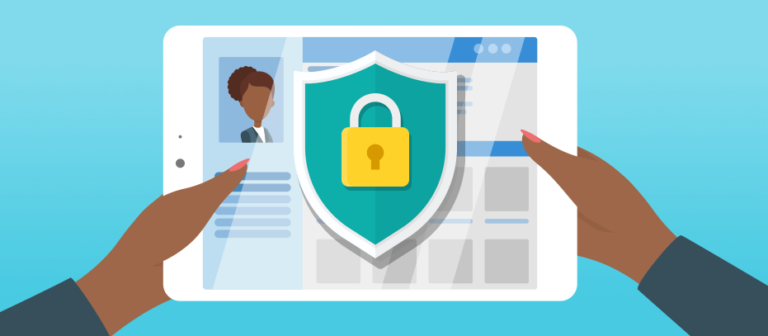As National Cyber Security Awareness Month (NCSAM) wraps up for 2019, we’d like to highlight one more concept: how to protect your digital profile. This goes along with this year’s NCSAM theme, “Own it. Secure it. Protect it.” We covered the first two topics in our previous posts on owning your digital profile and securing your digital profile. In this blog, we’ll talk about how practicing good cyber hygiene both at home and at work can help protect your digital profile.
Why Cyber Hygiene?
In a hospital setting, there is no tolerance for poor hygiene. Frequently washing your hands and using hand sanitizer can drastically decrease the chances of contamination, the spread of disease, and infection rates. It’s just as important to commit to cyber hygiene to slow down attackers who are looking to infect your mission-critical systems. This could mean handheld devices, work or personal laptops; you name it.
Tips to Protect Your Digital Profile
- Don’t use public WiFi –WiFi is so readily accessible these days. However, public WiFi in a cafe, airport, or hotel is almost never secure and is available at the user’s own risk. Malware is easily transferred between devices on the same network, wireless or not. At work, companies should have a policy that includes requiring users to connect through a VPN to access work-related materials when not in the office. You can also require mobile applications that tell the IT and security team who’s in compliance with security standards.
- Get rid of weak passwords – Don’t use easy-to-remember or similar passwords. Employees are using passwords that are too simple.Twenty-five percent are reusing the same password for everything, according to an OpenVPN survey of U.S.-based full-time employees. This makes your company’s entire network much more vulnerable to cyber attacks and puts your data at risk, too.
- Replace Unsupported Legacy Software or Hardware – Replacing unsupported legacy software and other products will require some time and money. However, it’s very necessary to protect your business and personal data. Even when resources are limited, this should be prioritized.
- One way to improve security is by building it into the corporate culture. A cyber-aware culture can make all the difference in whether your program is a success or just another task. “Setting the tone” can be accomplished in several ways. One of the most effective ways is to train users as part of the onboarding process.
- Encrypt Protected Information (PHI). Failing to encrypt laptops is pretty much inexcusable at this point. You’ll pay the price in the form of sanctions and other penalties. Encrypting wherever feasible is the best way to secure your data while offering a backup option in case that data is breached.
Summary
This is not a complete list of how to protect your digital profile. But the steps listed above should help you get started at home and at work. Follow these steps and you’ll build a solid foundation to protect your digital profile.
